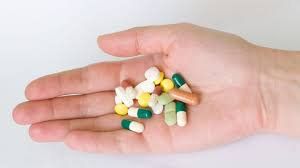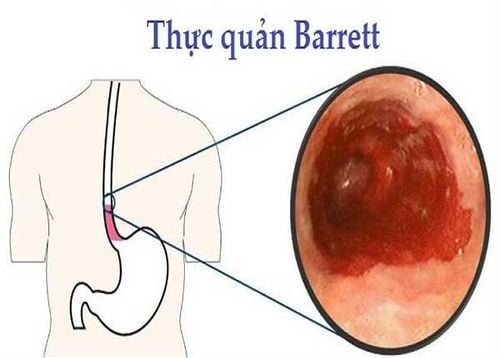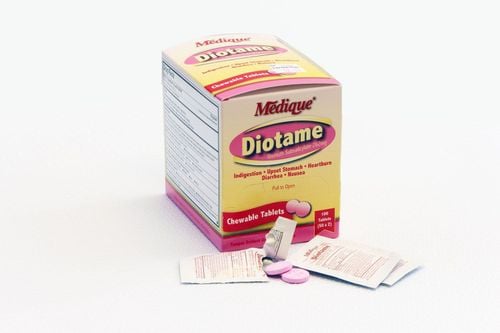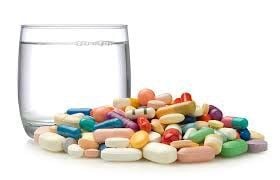This is an automatically translated article.
Posted by Doctor Mai Vien Phuong - Department of Medical Examination & Internal Medicine - Vinmec Central Park International General Hospital.The most frequently used treatments involve commercial drugs, such as omeprazole. However, lifestyle changes can also work. Just changing your eating habits or the way you sleep can dramatically reduce heartburn and acid reflux symptoms, improving your quality of life.
Read more: 14 ways to prevent heartburn and acid reflux Part 1
7. Avoid living behavior
One study in people with acid reflux found that eating a meal with raw onions significantly increased heartburn, acid reflux, and belching compared to an identical meal without onions. Ợ Steaming more often may indicate that more gas is being produced due to the high amount of fermentable fiber in the onion.
Raw onions can also irritate the lining of the esophagus, making heartburn worse. Whatever the reason, if you feel that eating raw onions is making your symptoms worse, you should avoid it.
Bottom line:
Some people experience worse heartburn and other reflux symptoms after eating raw onions.
8. Limit carbonated drinks
GERD patients are sometimes advised to limit their intake of carbonated beverages. One observational study found that carbonated soft drinks were associated with an increase in reflux symptoms.
Additionally, controlled studies show that drinking carbonated water or cola temporarily weakens the lower esophageal sphincter compared to drinking plain water. The main reason is because the sugar and starch on dioxide in carbonated drinks causes people to burp more often - an effect that can increase the amount of acid escaping into the esophagus.
Bottom line:
Carbonated drinks temporarily increase the frequency of burping, which can promote acid reflux. If they worsen your symptoms, try drinking less or avoiding them altogether.

Người bệnh GERD nên hạn chế uống đồ uống có ga
9. Don't Drink Too Much Citrus Juice
In a study of 400 GERD patients, 72% reported that orange or grapefruit juice worsened their acid reflux symptoms.
The acidity of citrus fruits does not appear to be the only factor contributing to these effects. Orange juice with a neutral pH can also worsen symptoms.
Since citrus juice does not weaken the lower esophageal sphincter, it is possible that some of its components irritate the lining of the esophagus.
While citrus juice may not cause acid reflux, it can make your heartburn temporarily worse.
Bottom line:
Most patients with acid reflux report that drinking citrus juice makes their symptoms worse. Researchers believe that citrus juice irritates the lining of the esophagus.
10. Consider eating less chocolate
GERD patients are sometimes advised to avoid or limit chocolate consumption. However, the evidence for this recommendation is weak. One small, uncontrolled study found that consuming 4 ounces (120 ml) of chocolate syrup weakened the lower esophageal sphincter.
Another controlled study found that drinking a chocolate beverage increased the amount of acid in the esophagus, compared to a placebo. However, further studies are needed before firm conclusions can be drawn about the effects of chocolate on reflux symptoms.
Bottom line:
There is little evidence that chocolate worsens reflux symptoms. A few studies suggest that may be the case, but more research is needed.
11. Avoid mint, if necessary
Mint and mint are common herbs used to flavor foods, candies, chewing gum, mouthwashes, and toothpastes. They are also common ingredients in herbal teas.
A controlled study of patients with GERD found no evidence of an effect of peppermint on the lower esophageal sphincter. However, research has shown that high doses of peppermint can worsen acid reflux symptoms, presumably due to irritation inside the esophagus.
If you feel mint makes your heartburn worse, then avoid it.
Bottom Line:
Some studies indicate that peppermint may worsen heartburn and other reflux symptoms, but the evidence is limited.

Người bệnh nên hạn chế sử dụng bạc hà
12. Raise the head of your bed
Some people experience reflux symptoms at night. This can disrupt their sleep quality and make it difficult for them to fall asleep. One study showed that patients with the head of the bed elevated had significantly fewer symptoms and reflux attacks than those who slept without the head elevated.
Additionally, an analysis of controlled studies concluded that elevating the head of the bed is an effective strategy for reducing acid reflux and heartburn symptoms at night.
Bottom line:
Elevating the head of the bed can reduce reflux symptoms at night.
13. Don't eat within three hours before going to bed
People with acid reflux are often advised to avoid eating within three hours of bedtime. While this recommendation makes sense, there is little evidence to support it. One study in GERD patients found that eating dinner late had no effect on acid reflux, compared with eating before 7pm.
However, one observational study found that eating close to bedtime was associated with significantly greater reflux symptoms when people were getting ready for bed
More research is needed before it can be said firm conclusions about the effect of late dinner on GERD. It can also depend on the individual.
Bottom Line:
Observational studies show that eating near bedtime can worsen acid reflux symptoms at night. However, the evidence is inconclusive and more research is needed.
14. Don't sleep on the right side
Some research shows that sleeping on your right side can worsen reflux symptoms at night. The reason is not entirely clear, but can be explained by anatomy.
The esophagus enters the right side of the stomach. As a result, the lower esophageal sphincter sits above the acid level in the stomach when you sleep on your left side. When you lie on your right side, stomach acid covers the lower esophageal sphincter. This increases the risk of acid leaking through it and causing reflux.
Obviously, this recommendation may not be practical, as most people change positions during sleep. However, lying on your left side can make it more comfortable to fall asleep.
Bottom line:
If you have acid reflux at night, avoid sleeping on the right side of your body.

Khi ngủ nghiêng bên phải có thể làm trầm trọng thêm các triệu chứng trào ngược
15. Conclusion
Some scientists suggest that dietary factors are the main underlying cause of acid reflux.
While this may be true, more research is needed to substantiate these claims.
However, studies show that simple dietary and lifestyle changes can significantly reduce heartburn and other acid reflux symptoms.
Please dial HOTLINE for more information or register for an appointment HERE. Download MyVinmec app to make appointments faster and to manage your bookings easily.














